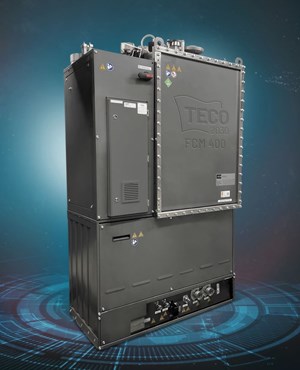News
TECO 2030 announces strategic shift to global fuel cell technology provider
TECO 2030 announced a strategic shift from manufacturing fuel cells in Norway at present, to positioning itself as a global technology provider. By offering licensing agreements to international partners, TECO 2030 is poised to accelerate the global adoption of its fuel cell technology in heavy-duty applications. This shift allows the company to focus on its core technology to unlock new international growth opportunities. Stack production might still take place in Norway.
This decision reflects TECO 2030’s commitment to growth in dynamic global markets, particularly in the face of regulatory delays in Norway. As opportunities in regions like the U.S., India, and Southeast Asia grow, driven by strong government support and substantial public investment in H2, TECO 2030 is positioning itself to take full advantage.
In the U.S., initiatives like the Bipartisan Infrastructure Law and the Inflation Reduction Act (IRA) are creating favorable conditions for H2 development, with $8 B allocated for H2 hubs and $369 B dedicated to climate and energy initiatives. TECO 2030 will pursue these opportunities through its American entity, TECO2030 INC, positioning the company to capture a significant share of the growing U.S. H2 market. Similarly, India is pursuing government-backed projects aimed at reducing emissions and expanding renewable energy infrastructure.
Despite efforts to secure risk financing in Norway, both from public and private sectors, the interest and capital support for clean-tech projects remain limited. By shifting focus to licensing, TECO 2030 can leverage stronger demand in high-potential international markets, ensuring sustainable growth and reinforcing its leadership in H2 fuel cell innovation.
TECO 2030’s pivot opens exciting new opportunities for investors by enabling the company to efficiently scale its offerings through licensing agreements. This will allow TECO 2030 to bring its advanced fuel cell solutions to various industries, including maritime, heavy-duty applications, data centers, mining, and trucking. With a strong focus on regions with robust public investment and favorable regulatory frameworks, the company is well-positioned to deliver long-term value and growth.
Technology leadership and product expansion. At the core of TECO 2030’s strategy is its cutting-edge PEM fuel cell technology, developed in close collaboration with AVL List GmbH. AVL, the world’s largest independent powertrain developer, brings over 20 years of experience in the fuel cell space. Their unmatched expertise has played a key role in the development of TECO 2030’s FCM400 system and the TECO 2030 fuel cell stack, which are designed to meet the stringent demands of heavy-duty industries. Additionally, TECO 2030 has introduced its fuel cell backup (FCB) solution, which offers efficient, zero-emission backup power for data centers and other critical infrastructure, complementing its other offerings in the clean energy space.
With over 500,000 man-hours dedicated to advancing fuel cell technology, TECO 2030 is positioned to meet the growing global demand for clean, efficient energy solutions. By transitioning to a licensing model, the company will extend its technological reach to a broader range of industries, expanding its global footprint and impact.
TECO 2030 continues to explore complementary markets, including data centers, mining, and heavy-duty trucking. The company’s planned joint venture with Advait Infratech Limited in India and its U.S. operations, through TECO2030 INC, will leverage favorable market conditions and public funding, such as the IRA, to drive growth in these key regions.


